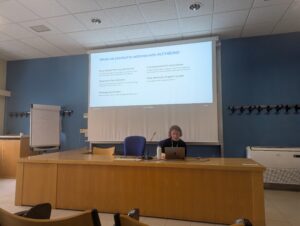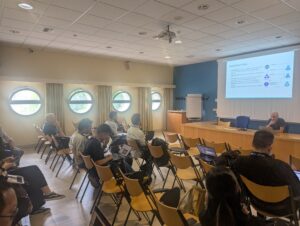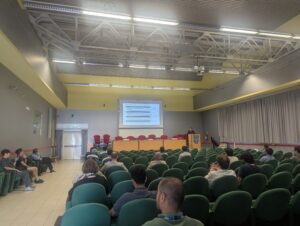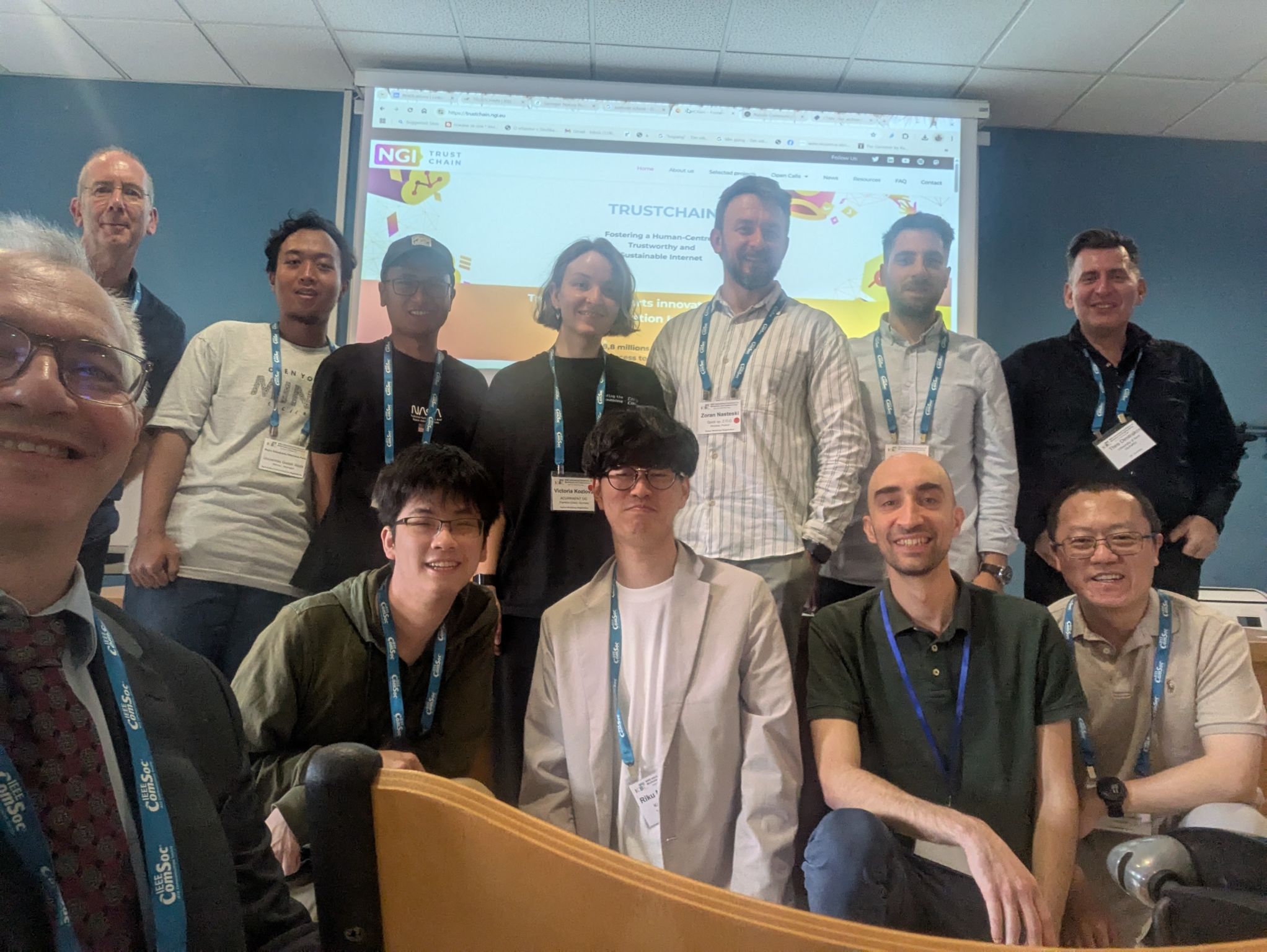In June 6, 2025, the International Workshop on Fostering a Human-Centered, Trustworthy and Sustainable Internet (TRUSTCHAIN 2025), held in collaboration with the IEEE International Conference on Blockchain and Cryptocurrency, successfully brought together leading minds to advance the vision of a democratic, privacy-friendly, and economically fair Next Generation Internet.
A Glimpse at the Day’s Highlights:
Professor Theo Dimitrakos from the University of Kent, UK, gave the keynote speech. He discussed “Research challenges in digital identity, authorization and user entitlement delegation to AI agents and Agentic AI networks,” focusing on the need for strong, secure, and user-focused identity solutions in our changing digital world.
Technical Sessions Unveiled Cutting-Edge Research:
Technical Session I kicked off with a paper directly from the Trustchain project itself: “Making User-Centric and Decentralized Identity and Loyalty Solutions: Lessons from the Trustchain Project.”
Following a brief coffee break, Technical Session II showcased a diverse range of innovative research:
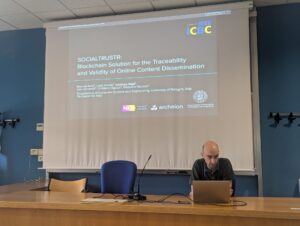
- Ben Biedermann (University of Malta & ACURRAENT UG, Malta), Victoria Kozlova (ACURRAENT UG (haftungsbeschränkt), Germany), and Fahima Gibrel (Metagovernance Project Inc, USA) presented their “Crypto-Economic Analysis of Web3 Funding Programs Using the Grant Maturity Framework,” shedding light on sustainable funding models for decentralized projects.
- Manuel Arto (Archeion s.r.l., Italy) and his collaborators Luca Sciullo, Lorenzo Gigli, Ivan Zyrianoff, Cristiano Aguzzi, and Federico Montori (University of Bologna, Italy) introduced “SOCIALTRUST: Blockchain Solution for the Traceability and Validity of Online Content Dissemination,” addressing the critical issue of misinformation and content authenticity
- Riku Mochizuki, Ryosuke Abe, and Shigeya Suzuki (Keio University, Japan) delved into “WARASHIBE Protocol: Fair Data-Data Exchange on Blockchain,” proposing a novel approach to equitable data exchange in decentralized networks.
- Finally, Sokratis Vavilis (Inlecom Innovation, Greece) and co-authors Harris Niavis, George Misiakoulis, Panos Protopapas, and Konstantinos Loupos explored “Generating efficient and semantic interoperable smart contracts for e-governance,” highlighting the potential of blockchain for improving public services.
TRUSTCHAIN 2025 successfully fostered engaging presentations, thought-provoking discussions, and invaluable networking opportunities, reinforcing the collective commitment towards building a more trustworthy and human-centered internet!
